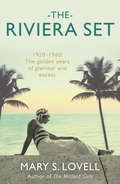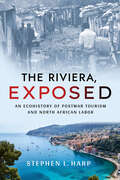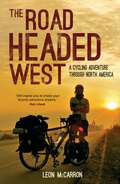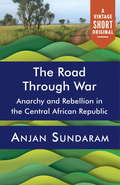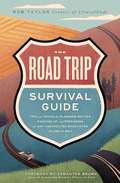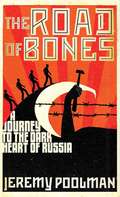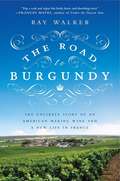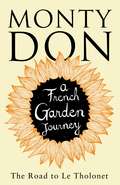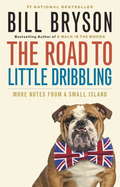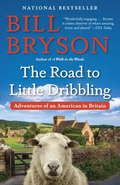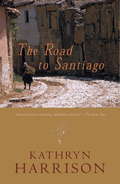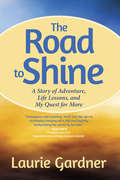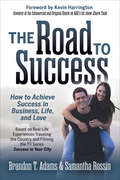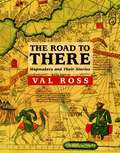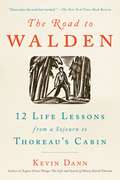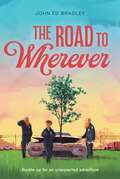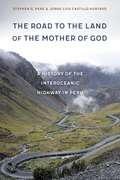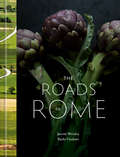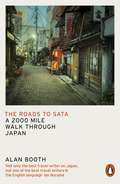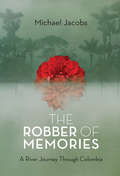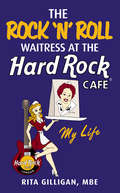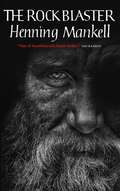- Table View
- List View
The Riviera Set: Glitz, Glamour, And The Hidden World Of High Society
by Mary S. Lovell'I loved every word' Sarra Manning, Red'[A] blissful book - it's like basking in the warm Med' Rachel Johnson, Mail on SundayThe Riviera Set is the story of the group of people who lived, partied, bed-hopped and politicked at the Château de l'Horizon near Cannes, over the course of forty years from the time when Coco Chanel made southern French tans fashionable in the twenties to the death of the playboy Prince Aly Khan in 1960. At the heart of this was the amazing Maxine Elliott, the daughter of a fisherman from Connecticut, who built the beautiful art deco Château and brought together the likes of Noel Coward, the Aga Khan, the Windsors and two very saucy courtesans, Doris Castlerosse and Daisy Fellowes, who set out to be dangerous distractions to Winston Churchill as he worked on his journalism and biographies during his 'wilderness years' in the thirties.After the War the story continued as the Château changed hands and Prince Aly Khan used it to entertain the Hollywood set, as well as launch his seduction of and eventual marriage to Rita Hayworth.Mary Lovell tells her story of high society behaviour with tremendous brio and relish, and this book has all the charm and fascination of her bestselling The Mitford Girls and The Churchills.
The Riviera Set: Glitz, Glamour, And The Hidden World Of High Society
by Mary S. Lovell'I loved every word' Sarra Manning, Red'[A] blissful book - it's like basking in the warm Med' Rachel Johnson, Mail on SundayThe Riviera Set is the story of the group of people who lived, partied, bed-hopped and politicked at the Château de l'Horizon near Cannes, over the course of forty years from the time when Coco Chanel made southern French tans fashionable in the twenties to the death of the playboy Prince Aly Khan in 1960. At the heart of this was the amazing Maxine Elliott, the daughter of a fisherman from Connecticut, who built the beautiful art deco Château and brought together the likes of Noel Coward, the Aga Khan, the Windsors and two very saucy courtesans, Doris Castlerosse and Daisy Fellowes, who set out to be dangerous distractions to Winston Churchill as he worked on his journalism and biographies during his 'wilderness years' in the thirties.After the War the story continued as the Château changed hands and Prince Aly Khan used it to entertain the Hollywood set, as well as launch his seduction of and eventual marriage to Rita Hayworth.Mary Lovell tells her story of high society behaviour with tremendous brio and relish, and this book has all the charm and fascination of her bestselling The Mitford Girls and The Churchills.
The Riviera, Exposed: An Ecohistory of Postwar Tourism and North African Labor (Histories and Cultures of Tourism)
by Stephen L. HarpA sweeping social and environmental history, The Riviera, Exposed illuminates the profound changes to the physical space that we know as the quintessential European tourist destination. Stephen L. Harp uncovers the behind-the-scenes impact of tourism following World War II, both on the environment and on the people living and working on the Riviera, particularly North African laborers, who not only did much of the literal rebuilding of the Riviera but also suffered in that process.Outside of Paris, the Riviera has been the most visited region in France, depending almost exclusively on tourism as its economic lifeline. Until recently, we knew a great deal about the tourists but much less about the social and environmental impacts of their activities or about the life stories of the North African workers upon whom the Riviera's prosperity rests. The technologies embedded in roads, airports, hotels, water lines, sewers, beaches, and marinas all required human intervention—and travelers were encouraged to disregard this intervention. Harp's sharp analysis explores the impacts of massive construction and public works projects, revealing the invisible infrastructure of tourism, its environmental effects, and the immigrants who built the Riviera.The Riviera, Exposed unearths a gritty history, one of human labor and ecological degradation that forms the true foundation of the glamorous Riviera of tourist mythology.
The Road Headed West: A Cycling Adventure Through North America
by Leon McCarronJust months after graduating, and terrified at the prospect of a life spent behind a desk, Leon took off to cycle across America. Over five months and 6,000 miles, he faced tornados, swollen river crossings and one hungry black bear. But he also met kind strangers and learned what happens when you take a chance and follow the scent of adventure.
The Road Through War
by Anjan SundaramA Vintage Shorts Travel Selection"I arrived to find that this was a war of walkers." So writes Anjan Sundaram about his journey into the heart of the war-torn Central African Republic in 2013. As soon as he arrived in the city of Gaga, he witnessed hundreds of people fleeing their homes for parts unknown, afraid to be one of the many victims of the Seleka rebel force that had taken over the country that year, or the anti-balaka militias that had sprung up in retaliation. As Sundaram follows a jungle path from village to village, he provides witness to a burning Republic, one that is still in the grips of chaos and violence.An eBook short.
The Road Trip Survival Guide: Tips and Tricks for Planning Routes, Packing Up, and Preparing for Any Unexpected Encounter Along the Way
by Rob TaylorMake the most of your next road trip with these essential tips and tricks for planning the ultimate epic adventure.During COVID-19, we&’ve all had to find different ways to travel. From the disruptions of airlines to the possibility of many travel restrictions at your destination, the car has become a more attractive (and safer) option. One part Bushcraft 101 and one part vacation planning workbook, The Road Trip Survival Guide provides guidance for new road trippers as well as essential tips and tricks for even the most experienced roadsters including: -How to organize your car for trips -Packing lists for different types of vacations, from city breaks to outdoor adventures -How to develop the perfect road trip itinerary that will suit the whole family -Recipes and recommendations for the best car snacks (easy access and less mess!) -Tips and tricks for making your trip more eco-friendly -How to reroute a road trip gone wrong -And more! The Road Trip Survival Guide is a must-have for anyone planning a vacation. Perfectly designed to fit in a glove box or back-seat pocket, you can now stop dreaming, hit the open road, and start experiencing the perfect road trip.
The Road of Bones: A Journey to the Dark Heart of Russia
by Jeremy PoolmanThe Road of Bones is the story of Russia's greatest road. For over 200 years, the route of the Vladimirka Road has been at the centre of the nation's history, having witnessed everything from the first human footsteps to the rise of Putin and his oil-rich oligarchy. Tsars, wars, famine and wealth: all have crossed and travelled this road, but no-one has ever told its story. In pursuit of the sights, sounds and voices both past and present, Jeremy Poolman travels the Vladimirka. Both epic and intimate, The Road of Bones is a record of his travels - but much more. It looks into the hearts and reveals the histories of those whose lives have been changed by what is known by many as simply The Greatest of Roads. This is a book about life and about death and about the strength of will it takes to celebrate the former while living in the shadow of the latter. Anecdotal and epic, The Road of Bones follows the author's journey along this road, into the past and back again. The book takes as its compass both the voices of history and those of today and draws a map of the cities and steppes of the Russian people's battered but ultimately indefatigable spirit.
The Road to Burgundy
by Ray WalkerAn intoxicating memoir of an American who discovers a passion for French wine, and gambles everything to chase a dream of owning a vineyard in Burgundy Ray Walker had a secure career in finance until a wine-tasting vacation ignited a passion that he couldn’t stifle. Ray neglected his work, spending hours poring over ancient French winemaking texts, learning the techniques and the language, and daydreaming about vineyards. After Ray experienced his first taste of wine from Burgundy, he could wait no longer. He quit his job and went to France to start a winery—with little money, a limited command of French, and virtually no winemaking experience. Fueled by determination and joie de vivre, he immersed himself in the extraordinary history of Burgundy’s vineyards and began honing his skills. Ray became a pioneer in his use of ancient techniques in modern times and founded Maison Ilan. In 2009, Ray became the first non-French winemaker to purchase grapes and produce a wine from Le Chambertin, long considered to be one of the most revered and singular vineyards in the world. Along with his struggle to capture his wine’s distinct terroir, Ray shares enthralling stories of late-night tastings, flying down the Route National on a vintage Peugeot bicycle with no brakes, and his journey to secure both the trust of his insular Burgundian neighbors and the region’s most coveted grapes. Capturing the sunlight, the smell of the damp soil, and the taste of superlative wine, The Road to Burgundy is a glorious celebration of finding one’s true path in life, and taking a chance—whatever the odds. .
The Road to Le Tholonet: A French Garden Journey
by Monty DonThis is not a book about French Gardens. It is the story of a man travelling round France visiting a few selected French gardens on the way.Owners, intrigues, affairs, marriages, feuds, thwarted ambitions and desires, the largely unnamed ordinary gardeners, wars, plots and natural disasters run through every garden older than a generation or two and fill every corner of the grander historical ones. Families marry. Gardeners are poached. Political allegiances forged and shattered. The human trail crosses from garden to garden. They sit in their surrounding landscape, not as isolated islands but attached umbilically to it, sharing the geology, the weather, food, climate, local folklore, accent and cultural identity. Wines must be drunk and food tasted. Recipes found and compared. The perfect tarte-tartin pursued. None of these things can be ignored or separated from the shape and size of parterre, fountain, herbaceous border or pottager. So this is a book filled with stories and information, some of it about French gardens and gardening, but most of it about what makes France unlike anywhere else.From historical gardens like Versailles,Vaux le Vicomte and Courances to the kitchen gardens of the Michelin chef Alain Passard. There will be grand potagers like Villandry and La Prieure D'Orsan and allotments and back gardens spotted on the way. Monty also celebrates the obvious French associations of food and wine and finds gardens dedicated to vegetables, herbs and fruit.It is a book that any visitor to France, whether gardeners or not, will want to read both as a guide and an inspiration. It is a portal to get under the French cultural skin and to understand the country, in all its huge variety and disparity, a little better.
The Road to Little Dribbling
by Bill Bryson<P>Bill Bryson returns to his internationally beloved topic, Britain, with his first travel book in fifteen years. <P>In 1995, Bill Bryson went on a trip around Britain to celebrate the green and kindly island that had become his home. The hilarious book he wrote about that journey, Notes from a Small Island, became one of the most loved books of recent decades. <P>Now, in this hotly anticipated new travel book, his first in fifteen years and sure to be greeted as the funniest book of the decade, Bryson sets out on a brand-new journey, on a route he dubs the Bryson Line, from Bognor Regis on the south coast to Cape Wrath on the northernmost tip of Scotland. <P>Once again, he will guide us through all that's best and worst about Britain today--while doing that incredibly rare thing of making us laugh out loud in public. <P><b>A New York Times Bestseller</b>
The Road to Little Dribbling: Adventures of an American in Britain (Bryson Ser. #1)
by Bill BrysonA loving and hilarious—if occasionally spiky—valentine to Bill Bryson&’s adopted country, Great Britain. Prepare for total joy and multiple episodes of unseemly laughter.Twenty years ago, Bill Bryson went on a trip around Britain to discover and celebrate that green and pleasant land. The result was Notes from a Small Island, a true classic and one of the bestselling travel books ever written. Now he has traveled about Britain again, by bus and train and rental car and on foot, to see what has changed—and what hasn&’t.Following (but not too closely) a route he dubs the Bryson Line, from Bognor Regis in the south to Cape Wrath in the north, by way of places few travelers ever get to at all, Bryson rediscovers the wondrously beautiful, magnificently eccentric, endearingly singular country that he both celebrates and, when called for, twits. With his matchless instinct for the funniest and quirkiest and his unerring eye for the idiotic, the bewildering, the appealing, and the ridiculous, he offers acute and perceptive insights into all that is best and worst about Britain today.Nothing is more entertaining than Bill Bryson on the road—and on a tear. The Road to Little Dribbling reaffirms his stature as a master of the travel narrative—and a really, really funny guy.
The Road to Santiago
by Kathryn HarrisonOvercome by the scenic beauty, Harrison threw open the hotel-room window shutters and exclaimed, "Look at the mountains!" From behind her, 12-year-old Sarah ecstatically waved the television's remote control and shouted, "French MTV!" So began a voyage distinguished by a mother getting to know herself through her daughter. For hundreds of years, thousands of worshipers have trekked, like this mother and daughter, on foot, the 400 miles from St.-Jean-Pied-de-Port, France, to the sacred shrine of the apostle James, the brother of Jesus. Everyone who endures the inhospitable weather, poor road conditions, and exhaustion does so not so much to enjoy the shrine as to survive the pilgrimage, a time-out-of-time penance. Harrison had taken the journey before, alone, and learned something about herself. Her account of her accompanied, reprise journey and what she learned, part of the National Geographic Directions travel series, endears with its wit and sensitivity.
The Road to Santiago
by Kathryn HarrisonDisplaying her "real talent for conjuring far-flung times and places," Kathryn Harrison tells the mesmerizing story of her 200-mile pilgrimage to Santiago de Compostela in Spain. In the spring of 1999, Kathryn Harrison set out to walk the centuries-old pilgrim route to Santiago de Compostela. "Not a vacation, " she calls it, "but a time out of time." With a heavy pack, no hotel reservations, and little Spanish, she wanted an experience that would be both physically and psychically demanding. No pain, no gain, she thought, and she had some important things to contemplate. But the pilgrim road was spattered with violets and punctuated by medieval churches and alpine views, and, despite the exhaustion, aching knees, and brutal sun, she was unexpectedly flooded with joy and gratitude for life's gifts. "Why do I like this road?" she writes. "Why do I love it? What can be the comfort of understanding my footprint as just one among the millions? ... While I'm walking I feel myself alive, feel my small life burning brightly." Throughout this deeply personal and revealing memoir of her journey, first made alone and later in the company of her daughter, Harrison blends striking images of the route and her fellow pilgrims with reflections on the redemptive power of pilgrimages, mortality, family, the nature of endurance, the past and future, the mystery of friendship. The Road to Santiago is an exquisitely written, courageous, and irresistible portrait of a personal pilgrimage in search of a broader understanding of life and self.
The Road to Shine
by Laurie GardnerFor anyone who's ever sensed that there must be something more . . . let the adventure begin.Using her own personal, professional, and exotic travel experiences, Laurie Gardner shows how we can derive life-changing insights and essential personal growth from any situation. Most importantly, we discover how to connect with our deepest desires and our highest selves, learning to honor our own intuition and truth.Laurie Gardner has Harvard degrees in comparative world religions, psychology, and education. She dedicated her career to spearheading an international public school reform movement and is a master practitioner in body/mind/spirit wellness.
The Road to Success: How to Achieve Success in Business, Life, and Love
by Brandon T. Adams Samantha RossinWithin The Road to Success, Brandon T. Adams and Samantha Rossin share every success and failure to ensure readers have the tools necessary to succeed in the world as it is today. Brandon T. Adams and Samantha Rossin, a newly engaged couple, spent 2018 traveling the country on a mission to find the true meaning of success before they tie the knot in marriage. Along the way, they experienced life with individuals who had achieved their own unconventional versions of success. Throughout The Road to Success, Brandon and Samantha bring readers into their own journey as a couple and share with them the lessons they learned that can help one discover their own meaning of success. Each success story and obstacle has its own lessons that provides readers with the wisdom necessary to achieve their own version of success in business, life, and love. After reading The Road to Success, readers find the answers they have been looking for to achieve their own success and happiness in life.
The Road to There: Mapmakers and Their Stories
by Val RossWinner of the 2004 Norma Fleck Award for Canadian children's non-fictionHonor Book for the Society of School Librarians International's Best Book Award - Social Studies, Grades 7-12Shortlisted for the Children's Literature Roundtable Information Book of the Year2003 winner of the Mr. Christie's Book Award SealShortlisted for the 2004 Norma Fleck Award for Canadian Children's Non-fictionIncluded on VOYA's ninth annual Nonfiction Honor ListSelected for inclusion in CCBC Choices 2004: the best-of-the-year list published by the Cooperative Children's Book center of the School of Education at the University of Wisconsin-MadisonNamed Notable Book by the International Reading Association's Children's Book Award in the intermediate nonfiction category Road maps; sailor's charts; quilts; songlines; gilded parchment covered with jewel-like colors; computer printouts - to guide us through the strange, vast, beautiful, and mysterious frontiers of the world of maps, Val Ross presents the men and women who made them.Here are some of the unexpected stories of history's great mapmakers: the fraud artists who deliberately distorted maps for political gain, Captain Cook, the slaves on the run who found their way thanks to specially-pieced quilts, the woman who mapped London's streets, princes, doctors, and warriors. These are the people who helped us chart our way in the world, under the sea, and on to the stars.With reproductions of some of the most important maps in history, this extraordinary book, packed with information, is as fascinating and suspenseful as a novel.From the Hardcover edition.
The Road to Walden: 12 Life Lessons from a Sojourn to Thoreau's Cabin
by Kevin DannThe acclaimed author of Expect Great Things: The Life and Search of Henry David Thoreau traverses on foot from Manhattan to Walden Pond, retracing Thoreau's steps and unlocking the practical principles of the mystic's life in the woods.When Henry David Thoreau launched his experiment in living at Walden Pond, he began by walking beyond the narrow limits of his neighbors, simply by putting himself at a mile remove from Concord's bourgeois epicenter - and a thousand-mile remove from stasis, complacency, and conformity. Kevin Dann emulates and extends Thoreau's experiment in radical self-education. Alternating between personal anecdotes from his spring 2017 walking pilgrimage and other "traveler" encounters and episodes told by Thoreau, Dann structures his book around 12 "injunctions"--distillations of seminal stories about overcoming convention and stasis. In this essential reading for every Thoreau enthusiast, naturalist and historian Kevin Dann brings to life an essential American icon in refreshing and modern way.
The Road to Wherever
by John Ed BradleyA middle grade road novel about a boy stuck on a summer trip with his offbeat auto-mechanic cousins—a humor- and heart-filled journey that leads the boy to an unexpected confrontation with some broken-down parts of himself. After eleven-year-old June Ball’s dad disappears without so much as a goodbye note, June’s mother sends him on the road with his adult cousins, mechanics Thomas and Cornell Ball. The Balls are “Ford Men”; their calling in life is to restore old Ford cars—and only Ford cars—that no longer run. And so begins a summer traveling the highways and byways of America, encountering busted-up Fairlanes, Thunderbirds, and Rancheros. They also encounter the cars’ owners, who sometimes need fixing up, too. June doesn’t understand his cousins’ passion for all things Ford. But at every turn, June realizes that this journey is about more than giving neglected classic cars some much-needed TLC—there’s room to care for the broken parts of humans, too.A story of adventure, longing, and growing up from adult novelist, journalist, and All-SEC center for the LSU Tigers, John Ed Bradley.
The Road to the Land of the Mother of God: A History of the Interoceanic Highway in Peru
by Stephen G. Perz Jorge Luis Castillo HurtadoThe Interoceanic Highway is many things to many people: an emblematic project during a period focused on integration, a dream realized for an isolated region, a symbol of the profound fragility of state institutions, a key cause of political corruption, and a major driver of ecological and cultural devastation. This highway links the Andean highlands with the Amazonian lowlands in southern Peru, offering an outlet for Brazil&’s emergent economy. While it finally brought an end to the isolation of Madre de Dios and other parts of southern Peru and the western Amazon, it was made possible by political corruption revealed in the Lava Jato scandal, and it permitted the spread of criminal business activities. But the Interoceanic Highway&’s deeper history must be appreciated in order to fully understand why it was built and the impacts it has generated.The Road to the Land of the Mother of God explores more than five hundred years of the history of Peru&’s Interoceanic Highway, showing how the purposes, portrayals, and importance of roads change fundamentally over time, and thus how roads bring significantly more impacts and costs than their advocates and critics generally anticipate. By taking a deeper look at infrastructure history, Stephen G. Perz and Jorge Luis Castillo Hurtado portray infrastructure as an integrative optic for understanding changes in local livelihoods, regional development, and social conflicts.
The Roads to Rome: A Cookbook
by Jarrett Wrisley Paolo VitalettiAn epic, exquisitely photographed road trip through the Italian countryside, exploring the ancient traditions, master artisans, and over 80 storied recipes that built the iconic cuisine of Rome When former food writer Jarrett Wrisley and chef Paolo Vitaletti decided to open an Italian restaurant, they didn&’t just take a trip to Rome. They spent years crisscrossing the surrounding countryside, eating, drinking, and traveling down whatever road they felt like taking. Only after they opened Appia, an authentic Roman trattoria in Bangkok of all places, did they realize that their epic journey had all the makings of a book. So they went back. And this time, they took a photographer. Roman cuisine doesn&’t come from Rome, exactly, but from the roads to Rome—the trade routes that brought foods from all over Italy to the capital. In The Roads to Rome, Jarrett and Paolo weave their way between Roman kitchens and through the countryside of Lazio, Umbria, and Emilia-Romagna, meeting farmers and artisans and learning about the origins of the ingredients that gave rise to such iconic dishes as pasta Cacio e Pepe and Spaghetti all&’Amatriciana. They go straight to source of the beloved dishes of the countryside, highlighting recipes for everything from Vignarola bursting with sautéed artichokes, fava beans, and spring peas with guanciale to Porchetta made with crisp-roasted pork belly and loin. Five years in the making, part-cookbook and part-travelogue, The Roads to Rome is an ode to the butchers, fishermen, and other artisans who feed the city, and how their history and culture come to the plate.
The Roads to Sata: A 2000-mile walk through Japan
by Alan Booth'A memorable, oddly beautiful book' Wall Street Journal'A marvellous glimpse of the Japan that rarely peeks through the country's public image' Washington PostOne sunny spring morning in the 1970s, an unlikely Englishman set out on a pilgrimage that would take him across the entire length of Japan. Travelling only along small back roads, Alan Booth travelled on foot from Soya, the country's northernmost tip, to Sata in the extreme south, traversing three islands and some 2,000 miles of rural Japan. His mission: 'to come to grips with the business of living here,' after having spent most of his adult life in Tokyo.The Roads to Sata is a wry, witty, inimitable account of that prodigious trek, vividly revealing the reality of life in off-the-tourist-track Japan. Journeying alongside Booth, we encounter the wide variety of people who inhabit the Japanese countryside - from fishermen and soldiers, to bar hostesses and school teachers, to hermits, drunks and the homeless. We glimpse vast stretches of coastline and rambling townscapes, mountains and motorways; watch baseball games and sunrises; sample trout and Kilamanjaro beer, hear folklore, poems and smutty jokes. Throughout, we enjoy the wit and insight of a uniquely perceptive guide, and more importantly, discover a new face of an often-misunderstood nation.
The Robber of Memories: A River Journey Through Colombia
by Michael JacobsMagdalena, a river that courses through the heart of Columbia, connects a violent past with the country's uncertain present. British writer Michael Jacobs struggles to reconcile his love for the land and its people with the dangers that both still present.Determined to eliminate modern conveniences from his journey, he begins traversing the river by tugboat. He makes an exception for a cell phone that maintains a sporadic signal at best, in efforts to keep in touch with his mother suffering from deteriorating health. Jacobs cannot help but notice the irony of his mother's dementia and his travels through Colombian townships with the world's highest incidence of early-onset Alzheimer's.While navigating the mysterious river and unfamiliar territory-both emotionally and geographically-Jacobs comes across Gabriel Garcia Márquez, whose own faltering memory shows a growing obsession with the Magdalena River of his youth. When Jacobs and his companions are apprehended by FARC guerillas who turn out to be as quirky and affable as they are intimidating, life begins to imitate the magical realism of Márquez's signature works. Shortly after being released from captivity, the FARC camp is bombed by the Colombian air force, leaving no likely survivors among his oddly likeable captors. Exploring themes of adventure, endings, and "the utter pointlessness of it all," Jacobs can only forge onward in his reflection of the mystical river.
The Rock 'N’ Roll Waitress at the Hard Rock Cafe
by Rita GilliganMeet Rita Gilligan, Hard Rock Cafe’s original ‘Rock ‘n’ Roll’ waitress and international cultural ambassador and MBE. It was 1971 when Hard Rock first opened its doors in London, and Rita was there with her spunky, chatty, and absolutely lovable personality. Over the forty-five years she served at Hard Rock, Rita has collected quite some stories to tell, including her relationship with rock ‘n’ roll celebrities, Hard Rock’s history, and her own personal life struggles. In this book Rita tells her story from being a shy Catholic schoolgirl in Galway to becoming the best known waitress and later ambassador of one of history's most iconic American style restaurants. She also narrates how she met Paul McCartney, Eric Clapton, The Rolling Stones, Bruce Springsteen and many other famous celebrities during her time at the Hard Rock. Written with candid humour and disarming honesty, Rita serves up a brilliantly crafted story about how the Hard Rock, like herself, defied all the odds to become a global phenomenon.
The Rock Blaster
by Henning MankellAn early gem from the creator of the Kurt Wallander series, charting the life of a principled man through tragedy, heartbreak, true love and the battle for a nation's soul."A very engaging portrait . . . There is a powerful lack of sentimentality to the telling of the story [and] a lovely and genuinely moving love story at the heart of the book." Liam Heylin, Irish ExaminerAt 3 p.m. on a Saturday afternoon in 1911, Oskar Johansson is caught in a blast in an industrial accident. The local newspaper reports him dead, but they are mistaken.Because Oskar Johansson is a born survivor.Though crippled, Oskar finds the strength to go on living and working. The Rock Blaster charts his long professional life - his hopes and dreams, sorrows and joys. His relationship with the woman whose love saved him, with the labour movement that gave him a cause to believe in, and with his children, who do not share his ideals.Henning Mankell's first published novel is steeped in the burning desire for social justice that informed his bestselling crime novels. Remarkably assured for a debut, it is written with scalpel-like precision, at once poetic and insightful in its depiction of a true working-class hero.Translated from the Swedish by George Goulding
